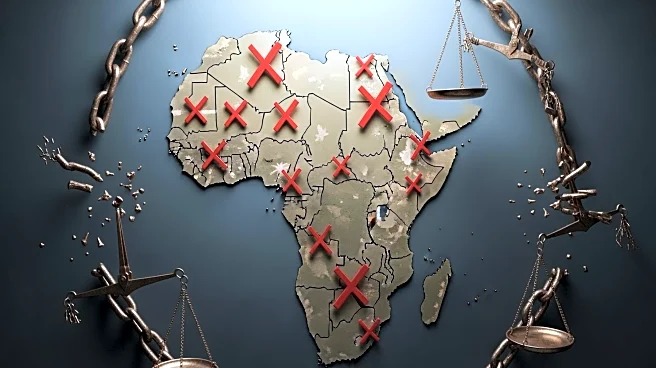What's Happening?
Africa has witnessed a significant increase in military coups over the past four years, with eight countries experiencing military takeovers. This trend is reshaping national governance, regional stability, and the credibility of democratic institutions
across the continent. Countries such as Mali, Burkina Faso, Niger, Guinea, Chad, Sudan, Gabon, and Madagascar have seen elected governments ousted by military forces. The Sahel region has become the epicenter of this trend, with states citing jihadist violence, economic collapse, and dissatisfaction with civilian governments as reasons for military rule.
Why It's Important?
The rise in military coups in Africa poses challenges to regional stability and governance. It affects foreign investment and the credibility of democratic institutions, potentially leading to economic and political isolation. The African Union and ECOWAS have struggled to address these changes, with sanctions and suspensions failing to restore constitutional rule. The shift in alliances towards countries like Russia and China indicates a realignment of Africa's diplomatic and economic partnerships, impacting traditional Western influence on the continent.
What's Next?
The persistence of military coups in Africa may lead to further diplomatic efforts by regional bodies to restore democratic governance. The African Union and ECOWAS may need to reassess their strategies and strengthen their influence to prevent future coups. International stakeholders may increase their involvement in promoting stability and development in affected regions. The situation could also lead to increased scrutiny of foreign influence and military presence in Africa, prompting discussions on sovereignty and self-determination.
Beyond the Headlines
The trend of military coups in Africa highlights deeper issues related to governance, inequality, and external interference. It raises questions about the legacy of colonial influence and the role of military forces in political transitions. The situation may lead to long-term shifts in Africa's political landscape, with potential impacts on regional integration and cooperation. The focus on sovereignty and independence could redefine Africa's diplomatic and economic relationships with global powers.

















